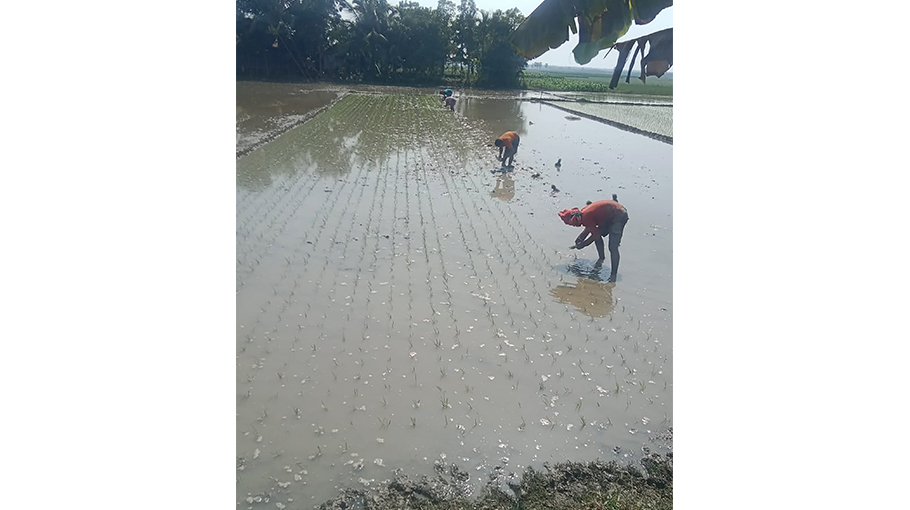Rain brings relief to Jhenaidah farmers
44 mm rainfall recorded in 4 days

The transplanting Aus (T Aus) farmers in Jhenaidah are satisfied as they have been witnessing rainfall in last four days since Sunday.
It will help a lot farm the rain-dependent T Aus throughout the district. The Department of Agriculture Extension (DAE) in Jhenaidah Khamarbari had recorded 44 milimetre of rainfall in last four days, said the DAE sources.
Farmer Safiuddin Ahmed of Ganna area in Jhenaidah Sadar Upazila said he was anxious with his Aus field as there was an acute irrigation water crisis due to prolonged drought for last couple of months. The rain is the most important factor for the farming of the paddy in the rainy season.
Safiuddin Ahmed said he had started the T Aus farming hoping natural rainfall in the monsoon. However, he was saddened when there was hardly any rainfall in last few months leaving the Aus fields cracked badly. Those who had afforded alternative irrigation water, were able to grow the crop without rain during the season. The rainfall is a blessing to the farmers. He was hoping to save irrigation cost.
DAE office sources in Jhenaidah said that they had set a target to produce 188,816 tons of rice on 44,500 hectares of land in six Upazilas of the district with a yield for 3.25 tones in each hectare on an average. But, 38,557 hectares of land came under the farming until June 30. It was 86 percent of the target. Upazila wise coverage of Aus transplanting was 2,262 hectares in Jhenaidah Sadar, 299 hectares in Kaliganj, 5,300 hectares in Kotchandpur, 15,010 hectares in Moheshpur, 14,472 hectares in Shailkupa and remaining 1,280 hectares in Harinakundu Upazila.
DAE sources said they had recorded 81.09 millimeters of rainfall in last six months. However, 44 millimeters rainfall in the last four days brought satisfaction among the farmers. The farmers had produced 142,505 tons of rice on 43,886 hectares of land in the last season. Yield on each hectare was 3.24 tons of rice on an average, the DAE sources said.
Sasti Chandra Roy, Deputy Director of the DAE in Jhenaidah said the T Aus is completely a rain-dependent paddy. He said most of the farmers in the season had arranged alternative irrigation water from the water suppliers at cost of about Taka 5,000 for each bigha (40 decimals) of land. It increases the overall production cost for the farmers, DAE deputy director said.




